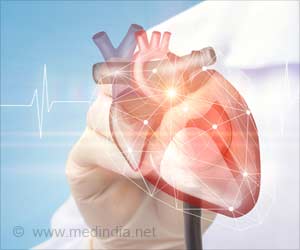A new study has revealed that the most minute particles of vehicle emissions may trigger plaque buildup in the arteries, which can lead to heart attack and stroke.
It’s not only fatty foods and smoking that can be detrimental to your health, but air pollution as well, for a new study has revealed that the most minute particles of vehicle emissions may trigger plaque buildup in the arteries, which can lead to heart attack and stroke.
The researchers also found a way in which pollutant particles can promote hardening of the arteries — by inactivating the protective qualities of high density lipoprotein (HDL) cholesterol, known as "good" cholesterol.The study was led by Dr. Andre Nel, UCLA's chief of nanomedicine and a researcher at UCLA's California NanoSystems Institute.
"It appears that the smallest air pollutant particles, which are the most abundant in an urban environment, are the most toxic. This is the first study that demonstrates the ability of nano-sized air pollutants to promote atherosclerosis in an animal model," said first author Dr. Jesus Araujo, assistant professor of medicine and director of environmental cardiology at the David Geffen School of Medicine at UCLA.
Less than 0.18 micrometers, Nanoparticles are the size of a virus or molecule, or about one-thousandth the size of a human hair. These particles are too small to capture in a filter.
"We hope our findings offer insight into the impact of nano-sized air pollutant particles and help explore ways for stricter air quality regulatory guidelines," said Nel, principal investigator and a researcher at UCLA's California NanoSystems Institute.
He added that air pollution and secondhand smoke had similar consequences on cardiovascular health. Pollution particles emitted by vehicles and other combustion sources contain a high concentration of organic chemicals that could be released deep into the lungs or even spill over into the systemic circulation.
Advertisement
It was found that mice exposed to ultrafine particles exhibited 55 pct greater atherosclerotic-plaque development than animals breathing filtered air and 25 pct greater plaque development than mice exposed to fine-sized particles.
Advertisement
The findings of this research appear in the recent online edition of the journal Circulation Research.
Source-ANI
KAR/S











